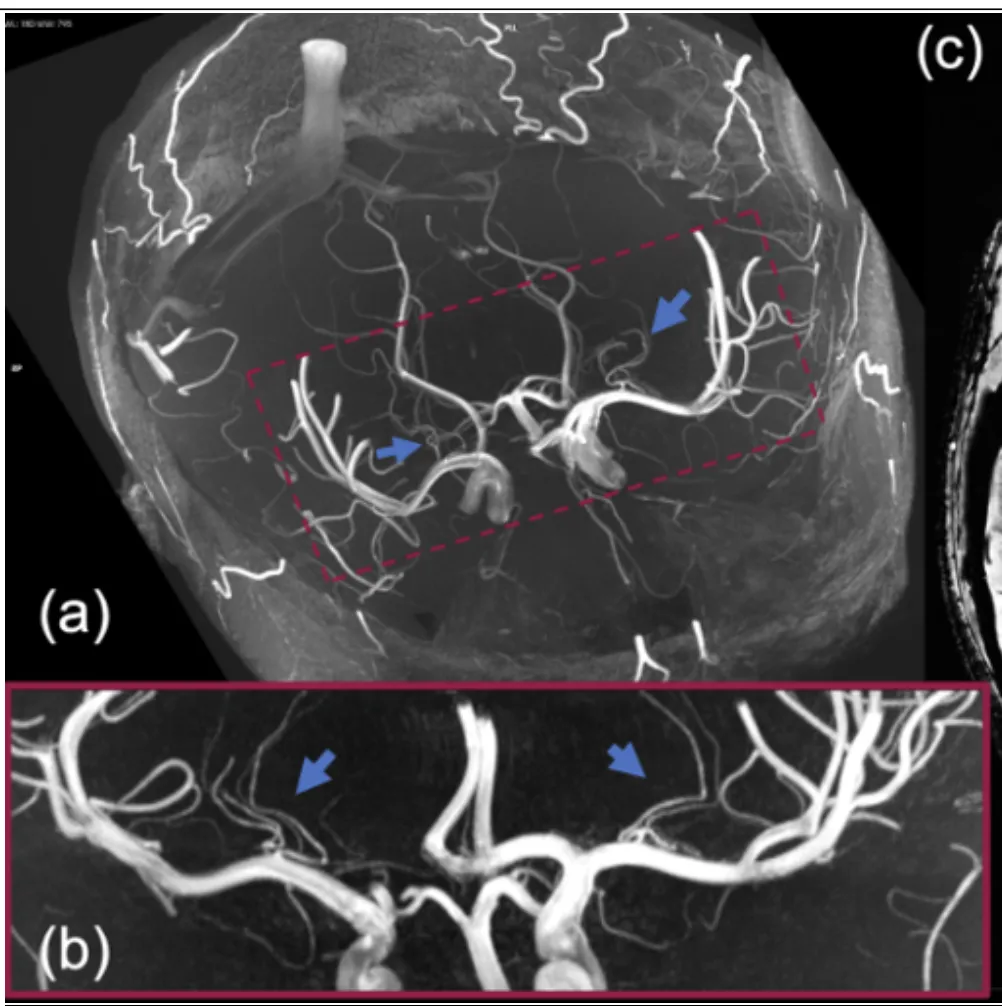Our exciting interdisciplinary study, for the first time, brings advanced 7 Tesla brain MRI to children with sickle cell disease – a debilitating condition in great need of further research. This should allow much better detection of the tiny strokes and narrowed blood vessels, affecting these children, ultimately allowing earlier and more tailored treatments.
Dr Jon Cleary, Adjunct Senior Lecturer BMEIS & Consultant Neuroradiologist, GSTT.
15 October 2024
MRI research funded to detect sickle cell brain injuries in children
BMEIS researchers have received seed funding for a new project to advance MRI detection of Sickle Cell disease-related brain injury in children.

King’s researchers have received seed funding from the Royal College of Radiologists to use advanced medical imaging technology to benefit children with sickle cell disease.
The project will utilise cutting-edge brain imaging available via the London Collaborative Ultra High Field 7T MRI scanner, based at the School of Biomedical Engineering & Imaging Sciences (BMEIS), to investigate advanced detection techniques for sickle cell disease related brain injury.
The 7T scanner can create significantly more detailed images than a standard scan, including blood flow measurements of tiny arteries which would usually be invisible on hospital scanners.
Diseased red blood cells can block and inflame both large and small arteries in the brain, leading to tiny stokes which accumulate over time.
Very small strokes may not be visible on standard scans and damage to the developing brain can lead to significant thinking and movement difficulties by adulthood.
The project aims to create tools for improving earlier diagnosis of brain injury, guiding patient treatment, and to help test new sickle cell disease medications.

This exciting project will harness cutting-edge brain imaging in order to investigate early image biomarkers of brain injury in children with sickle cell disease. The project is truly interdisciplinary, bringing together scientific and clinical colleagues within BMEIS and at the Evelina Children's Hospital to address this important condition.
Professor Sebastien Ourselin, FREng FMedSci, Head of School of Biomedical Engineering & Imaging Sciences.
The research team is comprised of:
- Dr Jon Cleary. Adjunct Senior Lecturer BMEIS & Consultant Neuroradiologist, GSTT
- Dr. Philip Benjamin, Consultant Neuroradiologist, St. George's Hospital
- Dr. Samah Babiker, Consultant Paediatric Haematologist, Evelina London Children's Hospital
- Dr. Saras Sabanathan, Consultant Paediatric Neurologist, Evelina London Children's Hospital
- Dr. Jonathan O'Muircheartaigh, IOPPN
- Prof. David Carmichael, BMEIS




